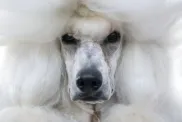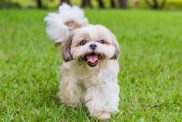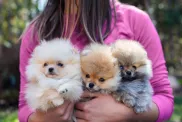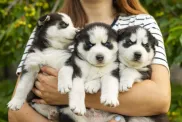The Shichon, also known as the Zuchon or Teddy Bear dog, is a small-sized cross between the Shih Tzu and a Bichon Frise dog breeds. These small, fluffy dogs are known for their affectionate, intelligent, and sociable personalities, making them a favorite among pet owners. Combining some of the best traits of their parent breeds, Shichons are celebrated for their playful demeanor and loving companionship. Despite being a designer breed, Shih Tzu Bichon mixes can often be found in shelters and rescue organizations, making adoption a viable option for prospective owners.
Highly adaptable, Shichons thrive in various living situations, whether it’s a cozy apartment, a bustling family home, or a quiet household with a single owner. They are especially well-suited for seniors, thanks to their manageable size and gentle temperament, and their affectionate nature makes them excellent therapy dogs. These loyal companions love being close to their families, often following their loved ones from room to room. Although they are not traditional guard dogs, their devotion and alertness may prompt them to protect their home and loved ones in their own way.
Shichon characteristics
- Height: 9 to. 12 inches at the shoulder
- Weight: 9 to 15 pounds
- Lifespan: 12 to 16 years
Coat and color variations
Shichons are known for their soft, plush coats, which can range in texture from wavy to curly. Their coats are also low-shedding which makes them a popular choice for individuals with allergies, though regular grooming is essential to keep their fur free from tangles and mats. Shichons come in a wide variety of colors and patterns, including white, cream, gray, tan, black, and chocolate. Many also display different combinations or markings, such as parti-color, brindle, or patches of contrasting hues.
Physical traits and appearance
- Size and Build: Compact and sturdy, weighing between 10-20 pounds and standing 9-12 inches tall at the shoulder.
- Coat: Soft, fluffy, low-shedding, with textures ranging from wavy to curly.Colors: Wide variety, including white, cream, tan, gray, black, chocolate, and multi-colored patterns.
- Facial Features: Round face with large, expressive dark eyes; a black button nose; and a short, slightly rounded muzzle.
- Ears: Medium-length, floppy, and often covered with silky fur.
- Tail: Plumed and curls gently over the back.
Are Shichons hypoallergenic?
Shichons are often described as hypoallergenic, but it’s important to clarify what this means. While no dog is entirely hypoallergenic, Shichons are a low-shedding breed, thanks to their Shih Tzu and Bichon Frise heritage. This reduces the amount of dander and loose fur in the environment, which can help minimize allergic reactions for people sensitive to these allergens.
However, individual allergies vary, and people with severe sensitivities should spend time with a Shichon before bringing one home to ensure compatibility. Regular grooming, including brushing and bathing, can further reduce allergens and keep their coat healthy and clean.
Shichon personality
Shichons are beloved for their affectionate and playful nature. They are highly people-oriented, thrive on attention, and will often form strong bonds with their families. Furthermore, their friendly demeanor makes them great with children, other pets, and even strangers. Shichons are also known for their adaptability—they can comfortably settle into apartments, suburban homes, or quiet rural settings. Despite their small size, they have big personalities.
In addition to being loving and social, Shichons are intelligent and eager to please, which makes training them a rewarding experience. They tend to pick up commands quickly and respond well to positive reinforcement methods. However, their strong attachment to their owners can sometimes lead to separation anxiety if left alone for long periods. To keep them happy and well-behaved, Shichons benefit from a balance of mental stimulation, physical activity, and plenty of cuddles. With their gentle, friendly, and outgoing personality, they make excellent therapy dogs and loyal family members.
Behavior and temperament traits
- Affectionate: Loves being close to family and thrives on attention.
- Sociable: Friendly with children, other pets, and strangers.
- Playful: Enjoys interactive games and has a lively, cheerful disposition.
- Intelligent: Quick to learn commands and eager to please during training.
- Loyal: Forms strong bonds with family members and stays close to their side.
- Adaptable: Adjusts well to different living environments, from apartments to larger homes.
- Gentle: Excellent with young children and seniors, often calm and soothing.
- Prone to Separation Anxiety: May struggle if left alone for extended periods.
- Therapy Potential: Their temperament makes them ideal for emotional support or therapy work.
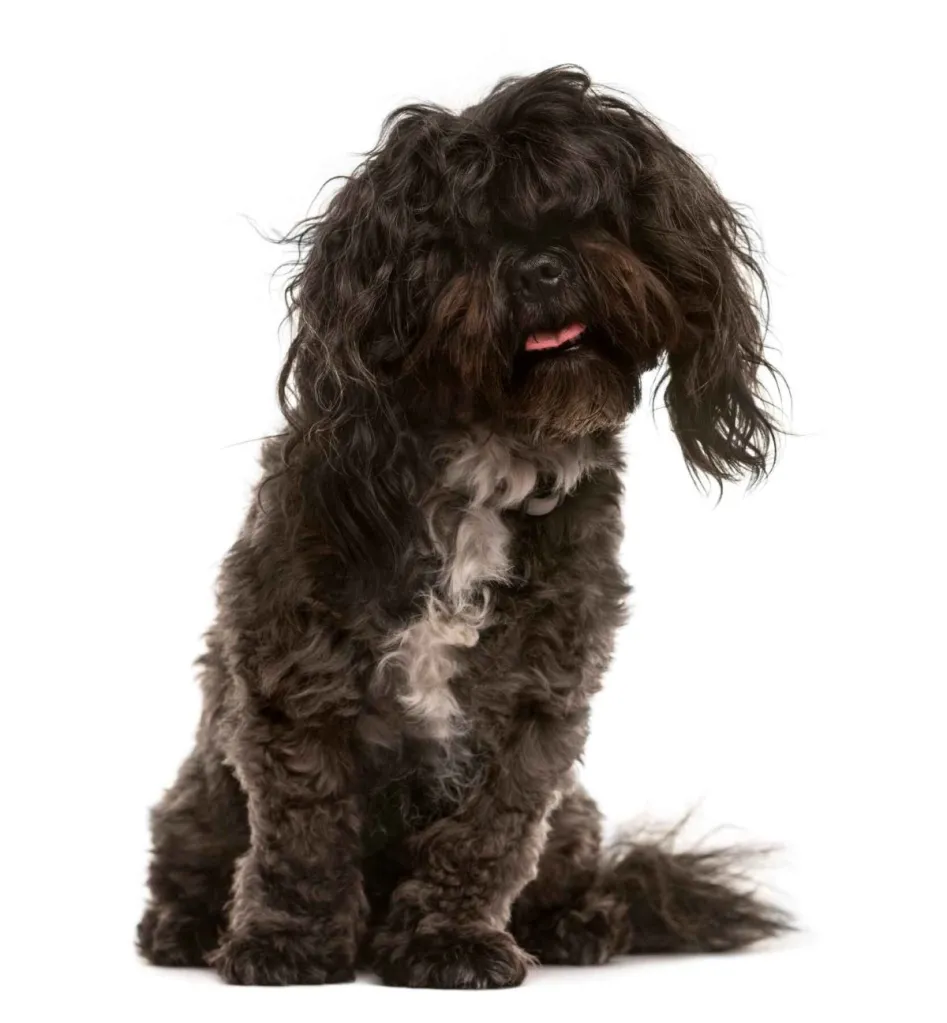
Early socialization and positive reinforcement training are crucial due to their intelligence and potential stubbornness. Of course, their intelligence allows them to pick up commands quickly, so early training is key to establishing good behavior from the start. Use praise, treats, and affection to reward desired behavior. Shih Tzu Bichons respond well to positive reinforcement, and this approach will keep them motivated and engaged.
Training tips:
- Be Consistent: Consistency is crucial in training. Use the same commands and routines to avoid confusion. This helps your Shichon understand what is expected of them.
- Keep Training Sessions Short and Fun: Shih Tzu Bichon mixes are intelligent but can lose interest if training sessions are too long or repetitive. Keep sessions short (10-15 minutes) and engage with varied activities.
- Mental Stimulation: Incorporate puzzle toys, obedience training, and interactive games into their routine to challenge their mind. A bored Shichon can become restless or even anxious.

Shichon grooming needs and care
As with all dogs, it’s important to keep up your Shih-Poo’s regular veterinary checkups to detect any health concerns early. Your vet can help you develop a care routine that will keep your dog healthy.
How to groom a Shichon
Grooming a Shih-Poo involves maintaining their coat, ears, nails, and teeth. Their grooming needs can vary depending on whether they inherit more of the Poodle’s curly coat or the Shih-Tzu’s silky coat.
Coat care
Brushing:
- Frequency: Brush your Shichon 2-3 times per week to prevent matting and tangles, especially if they have a curly or wavy coat. If their coat leans more toward the Bichon Frise side, you may need to brush daily.
- Tools: Use a slicker brush or pin brush for their curly or wavy coat, and a comb to detangle any knots.
- Tip: Pay extra attention to areas that are prone to matting, like behind the ears, under the legs, and around the collar.
Bathing:
- Frequency: Bathe your Shichon every 4-6 weeks or as needed. Frequent baths can dry out their skin, so stick to a gentle dog shampoo.
- Drying: After a bath, towel-dry and use a blow dryer on a low, cool setting if necessary. Make sure their coat is fully dry to prevent any moisture from causing irritation.
Trimming:
- Professional Grooming: If your Shichon has a coat like a Bichon, consider having them professionally groomed every 6-8 weeks. Groomers can shape the coat, keep it manageable, and trim around sensitive areas like the paws, face, and tail.
- Home Trimming: You can trim their coat at home using dog clippers or scissors for a tidy appearance, especially around the eyes and paws to avoid irritation.
Ear care
- Check for Dirt and Moisture: Shichons may be prone to ear infections. Check their ears weekly for signs of dirt, wax buildup, or moisture, which can lead to infections.
- Cleaning: Clean their ears with a veterinary-approved ear cleaner and a cotton ball or pad. Avoid using cotton swabs, as they can push debris further into the ear.
Nail trimming
- Frequency: Trim your Shih Tzu Bichon’s nails every 4-6 weeks, depending on their activity level. Active dogs may naturally wear down their nails, but indoor or less active dogs will need more frequent trims.
- Tip: Use a dog nail clipper or a grinder. Be careful not to cut too far down, as hitting the quick (the blood vessel inside the nail) can be painful and cause bleeding.
Dental and eye care
- Brush Regularly: Brush your Shichon’s teeth 2-3 times per week using a dog-specific toothbrush and toothpaste. Small breeds are more prone to dental problems. Frequent teeth brushing helps prevent plaque buildup.
- Dental Chews: Provide dental chews or toys to help reduce plaque and keep their teeth healthy.
- Clean Around the Eyes: If your Shichon’s coat grows around their eyes, regularly trim the hair to prevent irritation. Use a clean, damp cloth to gently wipe away any eye discharge or tear stains.
Check for skin issues
- Inspect Regularly: As you groom, check their skin for any signs of irritation, redness, or bumps. If you notice anything unusual, consult a vet.
Flea, tick, and parasite control
Keep up with flea and tick prevention treatments, especially if your Shichon spends much time outdoors. Regular grooming allows you to spot parasites early.
Early acclimation is key
Getting your Shichon accustomed to grooming procedures from a young age makes the process easier and more enjoyable for both of you. Handle their paws frequently, examine their mouth and ears, and reward them for good behavior during grooming sessions. This positive foundation sets the stage for stress-free veterinary exams and handling throughout their lives.
Feeding and nutrition
Shichons require a well-balanced diet tailored to their size, age, activity level, and overall health. High-quality dog food, whether commercially manufactured or prepared at home under veterinary guidance, ensures they receive the necessary nutrients, including proteins, fats, carbohydrates, vitamins, and minerals.
As a small breed prone to obesity, portion control is crucial, as is avoiding excessive treats. Puppies, adults, and senior Shichons have specific dietary needs, with puppies requiring frequent meals to support growth and seniors benefiting from diets designed for lower activity levels and joint support.
Puppies (2-12 months)
- Meals per Day: 4 meals (until 6 months, then reduce to 3).
- Portion Size: 1/4 to 3/4 cup of puppy food per day, divided into meals.
Adults (1-7 years)
- Meals per Day: 2 meals.
- Portion Size by Weight:
- 8-12 lbs: 1/2 to 1 cup of food daily.
- 13-18 lbs: 3/4 to 1 1/4 cups of food daily.
Seniors (7+ years)
- Meals per Day: 2 smaller meals.
- Portion Size: Similar to adults, but adjust for reduced activity levels. Senior-specific formulas with added joint support and easier digestion are recommended.
Shichon and family compatibility
Shichons are highly compatible with families, making them an excellent choice for households of all sizes and dynamics. Their affectionate, playful, and gentle nature makes them especially well-suited for families with children, as they are patient and love engaging in interactive play. Shichons are also good with other pets, provided they are socialized early, and their adaptable temperament allows them to thrive in both busy and quieter homes. These loyal companions form strong bonds with their family members and enjoy being at the center of attention, making them perfect for households looking for a loving and devoted pet. While their small size makes them ideal for apartments, they also fit seamlessly into larger homes, as long as they get plenty of companionship and affection.
Health issues
The Shichon is generally a healthy breed but may be prone to certain inherited health issues from its Shih Tzu and Bichon Frise parents. Regular veterinary checkups and proactive care are essential to maintaining their well-being. Below are brief descriptions of common health concerns affecting Shichons:
- Sensitive Skin/Allergies: Shichons may experience skin irritations or allergies triggered by environmental factors, food, or grooming products, often leading to itching, redness, or discomfort.
- Chronic Dry Eye: A condition where the eyes don’t produce enough tears, causing irritation, redness, and potential damage to the cornea if left untreated.
- Patellar Luxation: A knee joint issue where the kneecap dislocates, leading to pain, limping, or difficulty walking, especially in smaller breeds.
- Cataracts: Clouding of the eye lens, which can impair vision and, in severe cases, lead to blindness.
- Cushing’s Disease: A hormonal disorder caused by excess cortisol production, leading to symptoms like increased thirst, hunger, and weight gain.
- Gum Disease: Common in small breeds, this condition results from plaque buildup and can lead to tooth loss or systemic health issues if untreated.
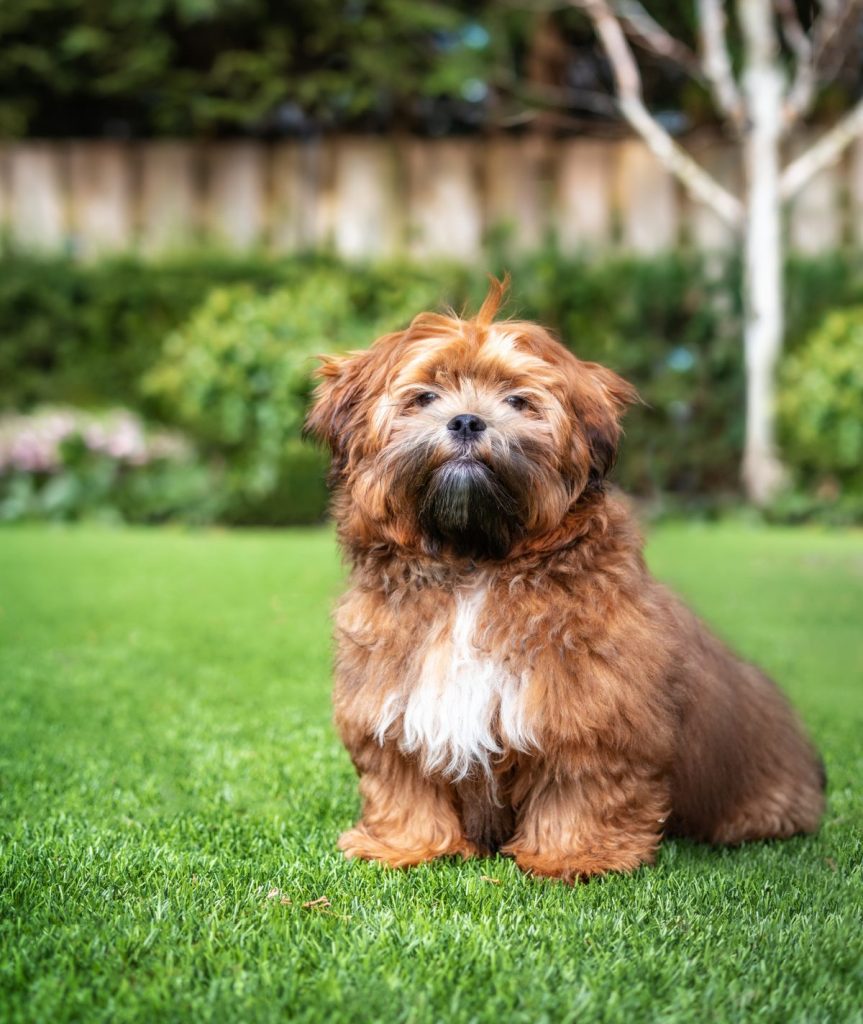
Rescue groups
It may be hard to find a breed-specific rescue for Shichons because they are a mixed breed. However, you may want to try Shih Tzu or Bichon Frise breed-specific rescues, as they often care for mixes, as well. Here are some rescues you can try:
How much are Shichon puppies?
On average, Shichon puppies range from $2000 to $4,500, with some prices going higher if the puppy comes from a well-known breeder or has desirable traits, such as specific coat colors or patterns. While it’s possible to find Shichon puppies at significantly lower prices, these often come from less reputable sources. It’s essential to research breeders thoroughly to avoid supporting backyard breeding operations or puppy mills, which prioritize profit over the health and welfare of their dogs. Puppies from such sources may have underlying health issues or poor socialization, leading to long-term challenges. Opting for a reputable breeder can help you find a healthier pet but also avoid inadvertently contributing to inhumane breeding practices.

